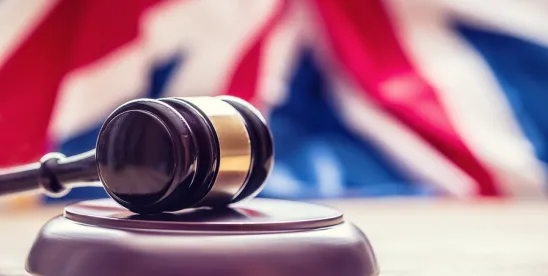With the holiday party season just around the corner, tragic events in the United Kingdom present a worst-case scenario for reveling workers and for employers who may find themselves held responsible. Bellman v. Northhampton Recruitment Ltd. extends the bounds of employer vicarious liability where an employee is injured at a company-related social event. But, the extraordinary facts at play and the Court’s hedging opinion suggest that the decision’s implications may be limited.
Facts
In December 2011, Northhampton Recruitment held its annual company holiday party at a golf club. Much of the company was in attendance and alcohol was served. As the party wound down, the Managing Director, Mr. Major, led a group of employees to an after party at a nearby hotel. Among this group was one of Major’s friends and a Sales Manager at the company, Clive Bellman. Once at the hotel, the employees continued to drink, and Major and Bellman eventually got into a drunken argument. The argument was initially sports-related, but soon migrated to a co-worker’s employment terms and other work-related matters before Major called others over and began lecturing the group about how he was their boss and the one with power. Eventually Bellman challenged Major, Major punched him twice, and Bellman fell, striking his head on the hotel’s marble floor. Bellman fractured his skull, needed multiple operations, and is now brain damaged with memory and speech impairment.
Lower Court
Bellman decided to sue Northhampton Recruitment, claiming that the company was vicariously liable for the assault. The court found for the employer, stating that the fight was unrelated to work such that the company was not vicariously liable for the incident: “Standing back and considering matters broadly, what was taking place at 3:00 a.m. at the hotel was a drunken discussion that [a]rose after a personal choice to have yet further alcohol long after a works event had ended”.
Court of Appeal
Bellman appealed, claiming that contrary to the ruling of the lower court, there was sufficient connection between Major’s position at the company and the assault to make the company vicariously liable for the incident. Specifically, Bellman pointed out that the assault was a result of challenging Major’s position of authority, authority the company vested in him, and that the assault was fueled by company-provided alcohol.
On appeal, the Court agreed with Bellman. Concurring with all of the above, the Court also pointed out that Major helped organize the holiday party, then paid for cabs to the after-party, and proceeded to buy drinks at the hotel, paying on the company’s behalf. Further, while the argument may have started over personal matters, the roughly 45 minutes leading up to the assault were related to work. Key to the appeal, Major was not on even footing with the other employees at the hotel. He held himself out the entire time as a Manager and cloaked himself in the company’s authority, lecturing and summoning co-workers, right up until the moment he assaulted Bellman.
Implications
At first glance, Northhampton’s broad interpretation of the “close connection” test is a concerning development for employers. Hours after a holiday party, at a different location, at an event unanticipated by the company, a personal argument leads to a tragic act of violence for which the employer becomes liable. However, this needs to be tempered by the very particular facts, including Northhampton’s business model, Major’s role at the company, the nature of the argument and a particularly tragic outcome.
First, Northhampton was by nature a 24-hour business. The company is a recruitment agency for truck drivers. Employees are on-call at all times and Major specifically was always on call in a management capacity, including at the time of the assault. Second, Major held immense responsibility at the company. He was in charge of all aspects of the business. His broad power is even more significant given the undisputed way in which he wielded it over the other employees at the hotel leading up to the assault. Further, the assault itself was after the argument turned to the company’s plans for the upcoming year, a specific employee’s contract, and other topics that directly fell under his remit. Lastly, this is simply a tragic set of facts. Major and Bellman knew each other a long time and an event intended to bring employees together ended in one employee’s life being ruined. Throughout the decision the Court hints towards the particularly sympathetic plaintiff, one who did not even sue his assaulter because he did not want to cause him harm. In the concurring judgment, Lord Justice Irwin may have summed it up best: “I do emphasize that this combination of circumstances will arise very rarely, liability will not arise merely because there is an argument about work matters between colleagues, which leads to an assault, even when one colleague is markedly more senior than another. This case is emphatically not authority for the proposition that employers became insurers for violent or other tortious acts by their employees”.
Even though this is a decision that is highly fact specific, as the holiday season approaches, it is a timely reminder of the perils of alcohol-fueled work-parties. Indeed, even setting aside the legal issues of vicarious liability, any inappropriate behavior at a work-related event is likely to have negative repercussions and contaminate the workplace. As such, we recommend the following tips for holiday parties:
-
Remind employees that they should be aware that the event (and any after-parties) are related to work and that they should conduct themselves accordingly.
-
Encourage employees to look out for one another, for example calling out behavior before it escalates and recommending to a colleague that it may be a good time for them to leave.
-
Avoid an atmosphere and culture that encourages heavy drinking, and in particular unlimited alcohol until the early hours.
-
Set the tone from the top – if management acts inappropriately it sends a message that such conduct is acceptable.



 />i
/>i

